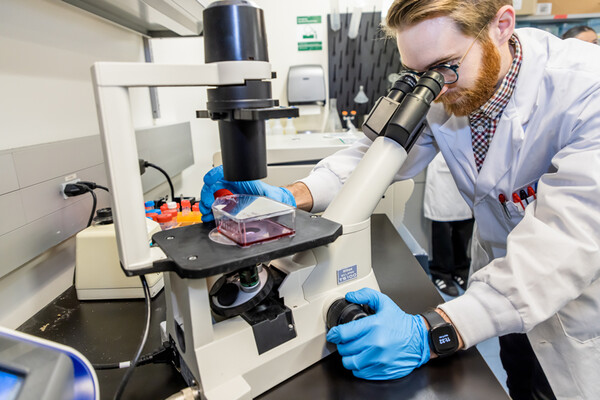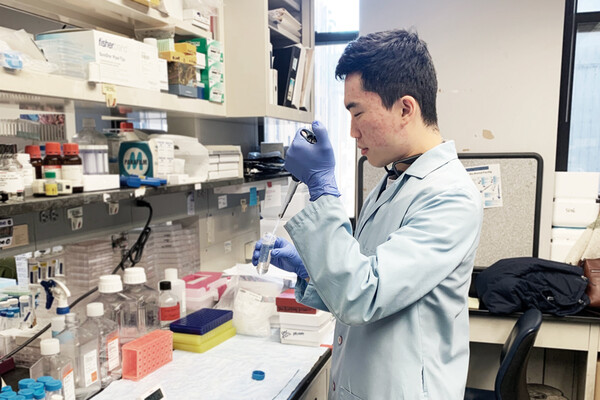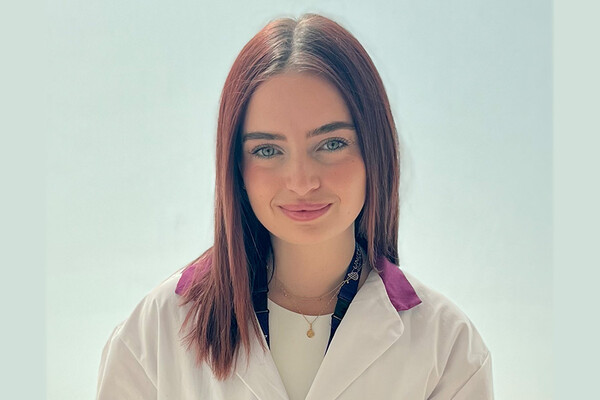From the heart: three cardiovascular researchers become Vanier Scholars in LMP!
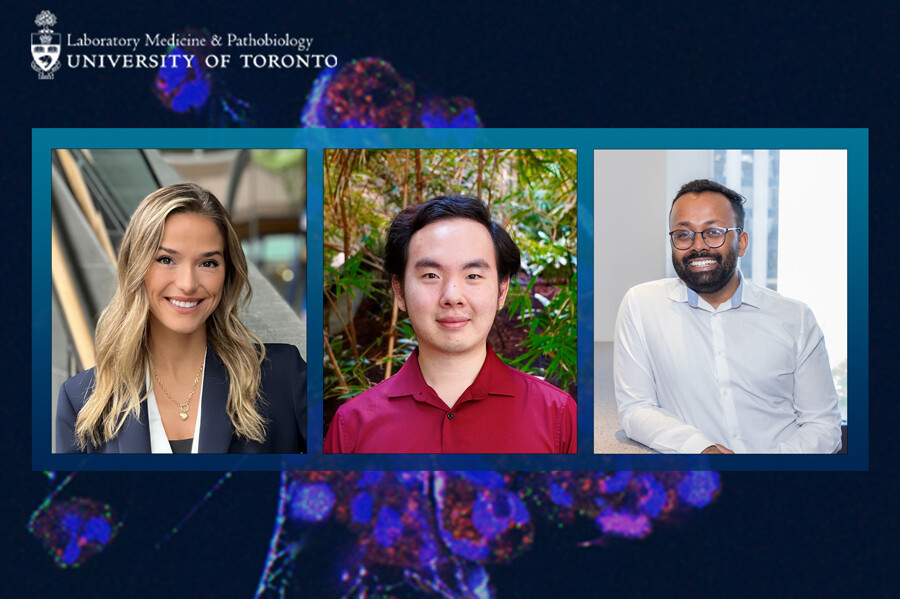
The Department of Laboratory Medicine and Pathobiology in the Temerty Faculty of Medicine has an excellent track record of successful Vanier Scholar applications. This year, we are delighted to announce that three PhD students in LMP have achieved this prestigious award.
Coincidently, all three scholars are completing (or have done so already) MDs and are conducting research for their PhDs in LMP on the vascular system, but in very different ways.
Vanier Canada Graduate Scholarships seek to support “students who demonstrate both leadership skills and a high standard of scholarly achievement in graduate studies”. We spoke to them to find out more about their work, leadership, and what advice they would give their fellow students when applying for a Vanier.
Dr. Michael Ohh, Vice Chair Education (Life Sciences) and Graduate Co-coordinator, commented, “LMP has a rich tradition of our students being recognized with one of the most prestigious national awards, The Vanier. It is a testament to the caliber of our students with exceptional academic and research potential who are destined to become the next generation of leaders in biomedical sciences. Congratulations to this year’s winners”.
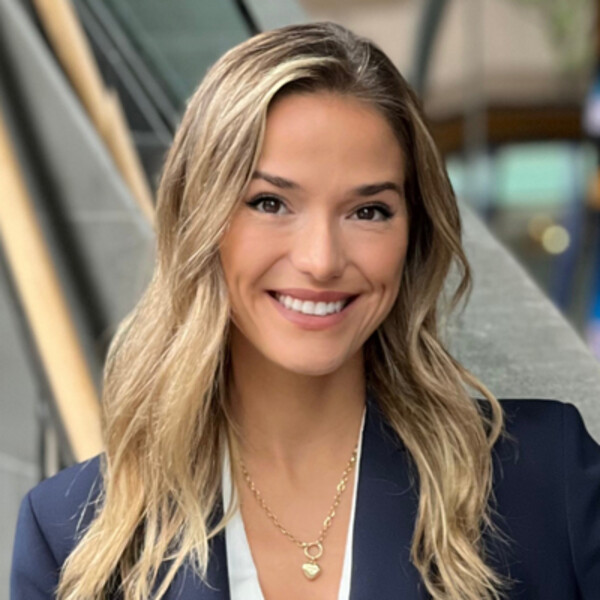
Dr. Ann Mansur, PhD Candidate
Lab: Dr. Ivan Radovanovic (Department of Surgery), Toronto Western Hospital
“My research focuses on the molecular biology of vascular malformations, the application of minimally invasive approaches to detect their underlying mutations, and the potential role for targeted therapeutics in the clinical management of these conditions. These malformations involve abnormal vessels that are prone to bleeding, proliferating, and causing significant morbidity and mortality in patients.
We have learned that the vast majority of these malformations are driven by somatic mutations in well-known cellular signalling cascades that have been implicated in other diseases such as cancer. We aim to better describe the implications of these mutations at the single-cell level and how we can safely repurpose cancer drugs that target these signalling pathways for patients with vascular malformations. I hope to learn how I can complement our conventional treatment paradigms with a precision-medicine approach in order to afford my patients a better quality of life.
Throughout my academic career, I’ve had the opportunity to develop my leadership skills by engaging with people from various backgrounds, trying to listen and communicate well, and helping to mobilize intentions into action. I gained experience in doing these in various undergraduate and medical school leadership opportunities, such as university clubs for advocacy and community development, curriculum development teams, and policy committees. As a clinician, I learned to mobilize teams of healthcare professionals of diverse backgrounds to guide patients and their caregivers through some of their most vulnerable moments. Now, as a graduate student, I am learning to direct my own experiments and lead a clinical trial by engaging with scientists, statisticians, clinicians, patients, pharmaceutical industry partners, and clinical trial organizations. This is an ongoing learning process and I am grateful for the support and mentorship of my supervisor and peers who helped nurture these skills along the way. They say it takes a village to raise a child, and in research, it is no different: we build upon the strengths of our team members to tackle a shared research question from various angles that will directly impact our communities.
When I learned that I was going to be a Vanier Scholar, I was overwhelmed with joy and gratitude for this opportunity and humbled to be considered for this prestigious award. Every day I am surrounded by such talented and compassionate leaders in society who are utmost deserving of such recognition and support, and I am very grateful to be amongst a community of inspiring individuals who help shape my own academic career. This award will help me dedicate the time needed out of my clinical training to develop my research skills, immerse myself in the scientific pursuit, delve deeper in addressing my research questions, and hopefully, make meaningful contributions to both the scientific and clinical communities”.
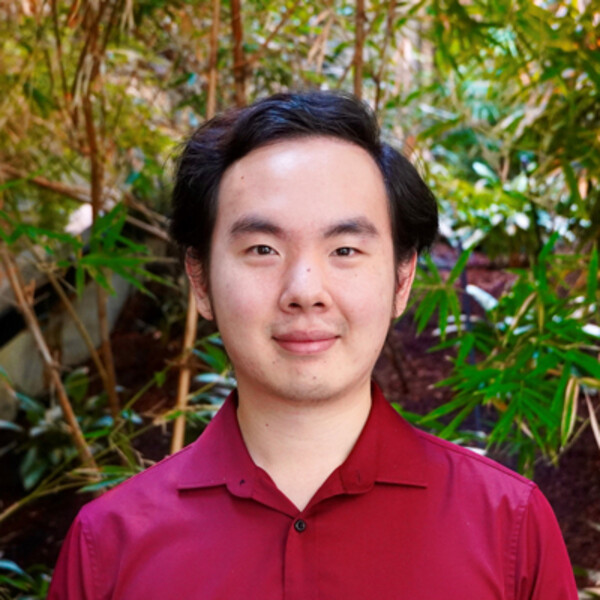
Robert Lao, MD/PhD Candidate
Lab: Dr. Mansoor Husain, University Health Network and Dr. Osami Honjo, The Hospital for Sick Children
“Protection of the heart, or ‘cardioprotection’, remains a clinical challenge, especially during long and complex pediatric cardiovascular surgery. This challenge has two key knowledge gaps that I aim to address in my research – the first being that we don’t fully understand this clinical setting and what’s causing so much damage and the second being that our current methods of cardioprotection are limited in their scope and are inadequate. I am developing a new pre-clinical surgical pediatric pig model of cardiovascular surgery whereby I can start to build a comprehensive understanding of the magnitude and mechanisms of cardiac injury. I can leverage these novel understandings and my newly developed platform to find and test potential cardioprotective agents that work to correct these injury pathways.
I think the distinguishing factor for Vanier, compared to most doctoral scholarships, is leadership and how an applicant presents their leadership statement. Importantly, I was able to tie my leadership philosophy and skills, back to how they impact the research I am doing - how my leadership skills enable me to be able to do the innovative, collaborative, and rewarding research that I am currently working on.
I have been able to develop skills in leadership and teamwork through my involvement in music, playing bridge, and in mentoring. My mentorship journey started in high school leading mentorship programs in an enrichment program and then in creating mentorship programs in undergrad when I was part of a specialist program at U of T, and now as an MD/PhD student. At each stage, I reflected on the privileged position I found myself in within each of these programs but also on the struggle I faced getting there. I felt compelled to do something to help others following similar challenging paths and channeled this drive into initiative-generating endeavours.
When I received the email from CIHR I was in disbelief and double-checked to make sure I was reading the results correctly, but then was overcome with joy. First, this recognition represents a clear sign of confidence from CIHR in the innovative nature of my research project, the world-class research environment that I am part of which makes pursuing this research possible as well as recognizing my ability to become a research leader in the scientific community. Second, this represents stability during my PhD studies and allows me to focus on pursuing the research that I am doing without any financial worries. I am thrilled to have been selected to be a Vanier Scholar.”

Mathepan Mahendralingam, MD/PhD Candidate
Lab: Dr. Adam Shlien, The Hospital for Sick Children
“Although the cancer treatment we give cancer patients does a great job at getting rid of their tumour, it, unfortunately, can also damage the heart. This cardiotoxicity can be mild, or it can be so severe that patients require a heart transplant. My PhD aims to determine why chemotherapy causes heart failure in cancer survivors. We’re looking for the answer to this by looking at the DNA and studying the patterns of mutations potentially caused by chemotherapy.
I hope our research helps doctors predict which childhood cancer survivor will develop these cardiac side effects of cancer therapy. Ultimately, we hope to pave the path for ‘Precision Survivorship’. My goal is to ensure that every childhood cancer patient is a lifetime survivor of this disease.
Everyone has a different philosophy for leadership. Mine has always been rooted in empowering the people of the communities I served. By focusing on what my community needed, I then tried to figure out how to help them best and, in the process, learned valuable leadership skills. Empowerment taught me to uplift my players as a coach, mentor students throughout their academic career, organize large fundraisers, and provide access to free medical devices and education.
I was eating lunch with my lab, and then I got an email notification from Vanier. I was in disbelief when I found out and had to ask people around me to verify that I got good news. Afterward, I called Jenn Kao and Danielle Karakas to thank them profusely for their guidance. I couldn’t have done it without them. I hope to pay it forward to any applicant applying, just like how they helped me.
The most significant difference Vanier will make is removing the substantial financial constraints of being a graduate student and enabling me to focus solely on my PhD research”.
How to write a successful Vanier application – from our Vanier Scholars
Ann, Mathepan, and Robert recommend that you:
-
Have a conversation with your supervisor: make sure you have their full support.
-
Start early – don’t leave it to the last minute. You need to fully understand what Vanier is looking for in each component and craft your application accordingly – this takes time.
-
Make sure to look over all the deadlines and submit appropriate documents – for example, checking when they want official transcripts.
-
Get feedback. Ask many individuals to edit your application such as your supervisor, lab mates, family, and friends. Using a broad range of people will also help you write for a broad audience and not get too technical.
-
Use this opportunity to tell the bigger story about your academic, research, and leadership values. You are writing your story. For example, for the leadership essay, identify a central theme that you can relay back to for each of your leadership stories.
Writing a Vanier application can be in itself a rewarding process, as Ann comments, “In the process, you learn a lot about yourself and what drives you, where you started and where you want to go as a scientist, leader and community member. Vanier is the embodiment of a well-rounded trainee who is always driven by a passion for inquiry and change. If you go back to the basics and just focus on what you are passionate about in your studies and your extra-curriculars, it will motivate you in your graduate projects and be evident to others who read your application the importance of your future work”.
More about Vanier Scholars
The Vanier Canada Graduate Scholarships program is designed to attract and retain world-class doctoral students by offering them a significant financial award to assist them during their studies at Canadian universities. Vanier Scholars demonstrate leadership skills and a high standard of scholarly achievement in the social sciences and humanities, natural sciences and engineering, and health-related fields.
See the full list of 2023 Vanier Scholars
- How communicating science secured a Vanier Award
- Meet Negin Khosraviani LMP’s new Vanier Scholar!
- Vanier Scholar helps discover how mitochondria are targeted for degradation
This story showcases the following pillars of the LMP strategic plan: Impactful Research (pillar 3) and Agile Education (pillar 5).

